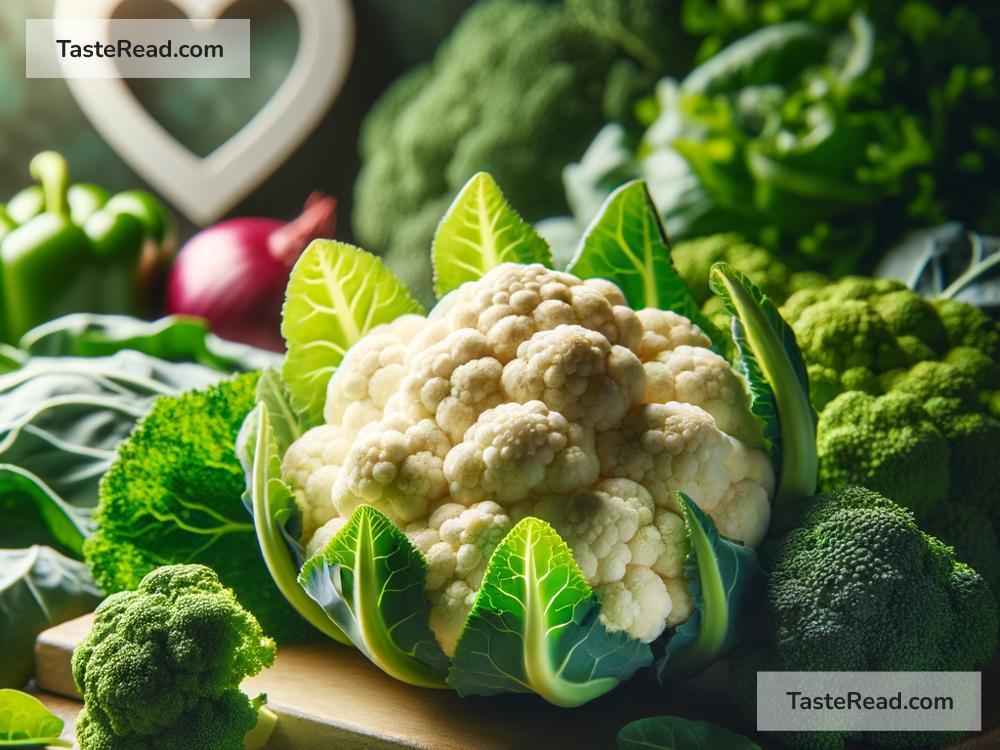Can Cauliflower Improve Heart Health?
Cauliflower is a light-colored vegetable that belongs to the cruciferous family, alongside broccoli, kale, and cabbage. Often overlooked in favor of trendier greens, cauliflower is packed with nutrients that offer a variety of health benefits. One area where cauliflower might make a big impact is in your heart health. If you’re wondering whether this humble vegetable can help protect your heart, the answer is a resounding “yes!” In this blog, we’ll explore how cauliflower can be an excellent addition to your diet for better cardiovascular health.
Why Is Heart Health Important?
Before we dive into cauliflower’s benefits, let’s discuss why heart health matters. The heart is a vital organ that pumps blood throughout your body. A healthy heart means your body is getting the oxygen and nutrients it needs to function properly. However, heart problems like high blood pressure, high cholesterol, and blocked arteries can increase your risk of heart disease, which is one of the leading causes of death worldwide.
Thankfully, many heart problems can be prevented or managed by eating a nutritious diet, staying active, and avoiding smoking. Foods rich in fiber, antioxidants, and vitamins can play a big role in keeping your heart in great shape—and cauliflower checks all these boxes.
What Makes Cauliflower Good for Your Heart?
Cauliflower contains several key nutrients and compounds that benefit heart health. Here are some of the reasons why this vegetable earns a top spot on the heart-healthy foods list.
1. Rich in Antioxidants
Antioxidants are substances that help protect your body from damage caused by harmful molecules called free radicals. Free radicals can lead to inflammation and damage your blood vessels, which increases the risk of heart disease. Cauliflower is rich in antioxidants such as vitamin C and manganese. These antioxidants help reduce oxidative stress, keeping your heart and blood vessels strong.
2. High in Fiber
Fiber is essential for a healthy digestive system, but did you know it’s also great for your heart? Fiber helps lower bad cholesterol levels (LDL) by preventing cholesterol from being absorbed into your bloodstream. This, in turn, reduces the risk of plaque buildup in your arteries and improves overall circulation. A single serving of cauliflower provides several grams of fiber, making it a terrific choice for heart-conscious eating.
3. Supports Healthy Blood Pressure
High blood pressure is a key contributor to heart disease. Luckily, cauliflower contains potassium, an important mineral that helps regulate blood pressure. Potassium works by balancing sodium levels in your body. Too much sodium can lead to increased blood pressure, but potassium reverses this effect by relaxing blood vessels and promoting better flow.
4. Low in Calories and Fat
One of the simplest ways to support heart health is by managing your weight. Being overweight puts extra strain on your heart, increasing the likelihood of heart problems. Cauliflower is low in calories and fat, making it a smart choice if you’re trying to maintain a healthy weight. Plus, its high fiber content keeps you feeling full, so you’re less likely to snack on unhealthy foods.
5. Contains Sulforaphane
Cauliflower contains a compound called sulforaphane, which has been studied for its potential benefits in preventing heart disease. Sulforaphane helps protect your blood vessels from inflammation and oxidative damage. These effects may help lower your risk of heart-related conditions like atherosclerosis, which occurs when plaque builds up in the arteries.
How to Add Cauliflower to Your Diet
If you’ve never been a fan of cauliflower, it’s time to give this vegetable a second chance! Cauliflower is incredibly versatile and can be used in both simple dishes and more elaborate recipes. Here are a few easy ways to include it in your meals:
-
Roasted Cauliflower: Toss cauliflower florets with olive oil, garlic, and your favorite seasonings, then roast in the oven until golden. Roasting brings out a delicious, nutty flavor.
-
Cauliflower Rice: Swap out regular rice for cauliflower rice—a low-carb, heart-healthy alternative. It’s perfect for stir-fries or as a side dish.
-
Cauliflower Mash: Replace mashed potatoes with mashed cauliflower. Add a bit of butter, garlic, and seasonings for a creamy, low-calorie option.
-
Soups and Stews: Add cauliflower to soups and stews to boost the nutrient content. It easily absorbs flavors from other ingredients.
-
Raw Cauliflower: For a quick snack, dip raw cauliflower florets in hummus or yogurt-based dips.
Are There Any Downsides?
Cauliflower is generally safe for most people to eat. However, if you have certain conditions such as IBS (irritable bowel syndrome), cauliflower might cause gas or bloating due to its high fiber content. Eating in moderation and pairing it with other foods can help minimize these effects.
Final Thoughts
Cauliflower is more than just a bland vegetable—it’s a superfood for your heart. Packed with fiber, antioxidants, potassium, and sulforaphane, cauliflower supports healthy cholesterol levels, reduces inflammation, and helps regulate blood pressure. Cruciferous vegetables like cauliflower are fantastic for overall health, and adding them to your diet is a simple, tasty way to keep your heart strong.
So the next time you’re planning your meals, don’t forget to include cauliflower! Whether roasted, mashed, or added to soups, this versatile veggie can play a key role in boosting your heart health. A healthy heart starts with healthy habits—and cauliflower is a step in the right direction.


